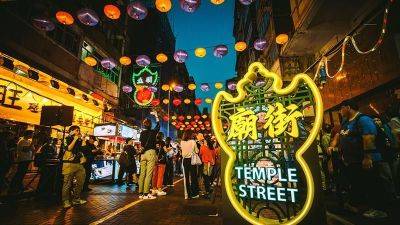Year of the Dragon: Everything you need to know about Chinese New Year 2024
春节快乐!(Chūnjié Kuài Lè!) Happy Chinese New Year!
Celebrated around the world, the festival recognises the second new moon after the winter solstice and the beginning of spring, hence its literal name: the Spring Festival or Lunar New Year.
A cornerstone of Chinese culture, the Spring Festival is celebrated by around 2 billion people. Although it is primarily associated with the majority Han ethnicity in China, it is also celebrated by 29 of China’s 55 ethnic minority groups as well as many other East Asian nations, with public holidays in China, Hong Kong, Macau, Taiwan, Singapore, Malaysia, North Korea, South Korea, the Philippines, Indonesia, Vietnam and Brunei.
Celebrated on the day after the second full moon, this year’s Spring Festival starts on 10 February and festivities will last until the Lantern Festival (more on that later) on 24 February.
Around 2,230,000 people who are Chinese immigrants or of Chinese descent live in Europe today. This number doesn’t take into account the many other Asian-origin demographics in Europe who will celebrate the holiday.
Many of the traditional festivals on the Chinese calendar stem from celebrations of significant agricultural dates. While the Mid-Autumn Festival, or Moon Festival, celebrated the end of the harvest season on 29 September 2023, the Spring Festival signifies the start of farming season.
There’s a deep historical tie between rituals and agriculture in Chinese culture, which can be linked to the naturalistic approach to spirituality. The term 天 (Tiān) is a good example of that, with definitions that range from “day” through “season” and all the way to “God” and “Heaven”. While that might seem a pretty broad range to a Westerner, it’s consistent with a philosophy that ties the supernatural to the natural world.
Recordings of Spring Festival celebrations date back to as early as the Warring States Period from 475 BC to the unification of China under Qin Shi Huang in 221 BC.
As the Spring Festival is based around the Chinese lunar calendar, the dates it is celebrated change annually according to the Western Gregorian calendar. It usually falls between 21 January and 20 February, with this year’s celebration on







